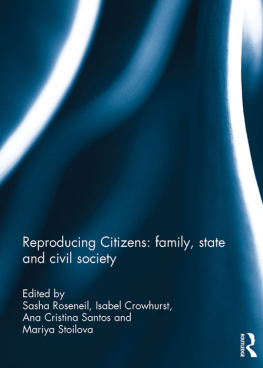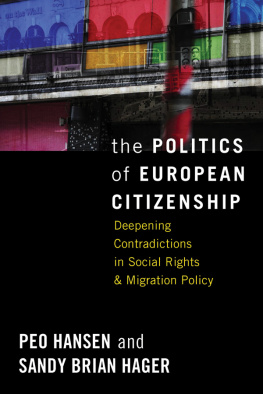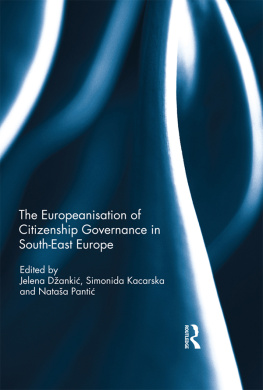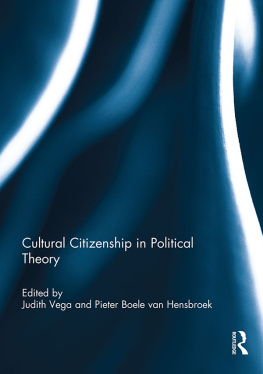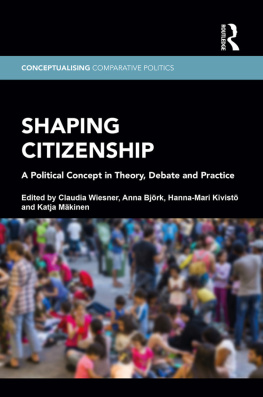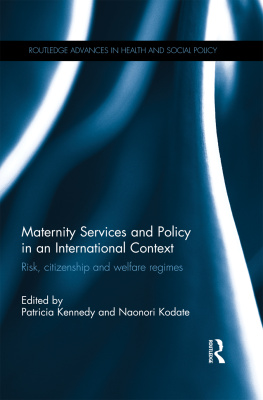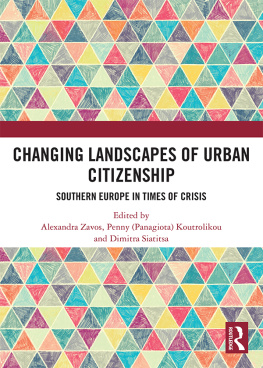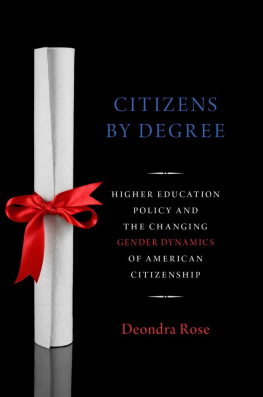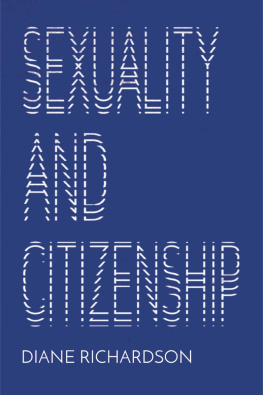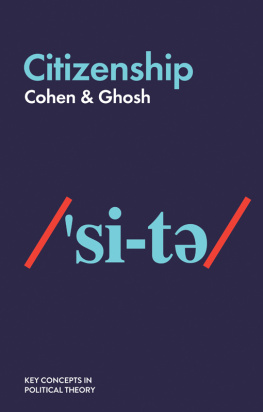

First published in 2020 by
UCL Press
University College London
Gower Street
London WC1E 6BT
Available to download free: www.uclpress.co.uk
Text Authors, 2020
Images Authors and copyright holders named in captions, 2020
The authors have asserted their rights under the Copyright, Designs and Patents Act 1988 to be identified as authors of this work.
A CIP catalogue record for this book is available from The British Library.
This book is published under a Creative Commons Attribution Non-commercial Non-derivative 4.0 International licence (CC BY-NC-ND 4.0). This licence allows you to share, copy, distribute and transmit the work for personal and non-commercial use providing author and publisher attribution is clearly stated. Attribution should include the following information:
Roseneil et al. 2020. The Tenacity of the Couple-Norm: Intimate citizenship regimes in a changing Europe. London: UCL Press.
https://doi.org/10.14324/111.9781787358898
Further details about Creative Commons licences are available at http://creativecommons.org/licenses/
Any third-party material in this book is published under the books Creative Commons licence unless indicated otherwise in the credit line to the material. If you would like to re-use any third-party material not covered by the books Creative Commons licence, you will need to obtain permission directly from the copyright holder.
ISBN: 978-1-78735-891-1 (Hbk.)
ISBN: 978-1-78735-890-4 (Pbk.)
ISBN: 978-1-78735-889-8 (PDF)
ISBN: 978-1-78735-892-8 (epub)
ISBN: 978-1-78735-893-5 (mobi)
DOI: https://doi.org/10.14324/111.9781787358898
Contents
This book is one of many publications to flow from the FEMCIT project, and first and foremost we wish to thank all our colleagues in this remarkable collective endeavour, a research project that involved 45 feminist social scientists across 13 European countries. Beatrice Halsaa, Sevil Smer and Solveig Bergman were the scientific leaders of the project, along with two of us Sasha Roseneil and Tone Hellesund. Siren Hogtun was the Administrative Coordinator. Nicky LeFeuvre, Line Nyhagen Predelli, Joyce Outshoorn and Monica Threlfall were the other members of the FEMCIT Steering Committee. The European Commission 6th Framework provided the funding that enabled us to carry out this ambitious programme of research. We acknowledge the support of the universities at which we have worked whilst undertaking the research and writing the book, in particular Birkbeck, University of London, where the project was based, and the Rokkan Centre and the University of Bergen, the University of Essex, the Centre for Social Studies at the University of Coimbra and, latterly, UCL.
At Birkbeck, Miriam Zukas always took a keen interest in our research on intimate citizenship, as did colleagues in the Department of Psychosocial Studies and the Birkbeck Institute for Social Research: Lisa Baraitser, Matt Cook, Rosie Cox, Stephen Frosh, Gail Lewis, Joni Lovenduski, Daniel Monk, Lynne Segal and Bruna Seu. Carly Guest, Robert Kulpa, Katherine Ludwin, William Potter, Sharon Shoesmith, Mahnaz Sekechi and Ceren Yalcin engaged creatively with our interview data as participants in our interpretation workshops, offering invaluable challenge and insightful contributions to our analysis. Heather Elliott, Prue Chamberlyne and Tom Wengraf spent five days training us in the biographical-narrative interpretive method at the start of the research; we did not follow their guidance to the letter, but this book is unimaginable without their work. Toms dedication to the development of the biographical-narrative interpretive method was particularly inspirational. We are hugely grateful to Jenny Bredull, who provided patient and painstaking editorial and research assistance at various stages in the project. We also thank all of those who form part of our own intimate circles, who lived with the idea, and writing, of the book for a very long time.
But above all, we acknowledge the generous contribution of the people in London, Sofia, Oslo and Lisbon whose accounts of living with and against the couple-norm are the heart of this book.
The couple remains one of the most potent objects of normativity in contemporary European societies. Over recent decades, people have been spending longer periods of their lives outside the heterosexual cohabiting couple-form. Everyday practices of intimacy and the cultures, laws and policies that frame them have been undergoing profound change. As the extended family has tended to recede from daily life and the nuclear family has been losing its hold on individuals, intimate life choices have proliferated. Womens greater economic and social independence and the profound reshaping of cultural expectations and personal desires by feminist and lesbian and gay movements have foregrounded the ideals of equality, self-actualization and individual rights and freedom. This has contributed to the rising numbers of people who are living alone, remaining unmarried, divorcing, de-domesticating their sexual and love relationships, living openly with, marrying and divorcing same-sex partners. Yet amidst these radical upheavals in personal life there are significant continuities in norms and lived experience, even amongst those most embodying and affected by them. It is against the backdrop of these changes that the tenacity of the couple-norm comes sharply into focus.
This book is about the ongoing strength of the couple-norm and the insidious grip it exerts on our lives as it defines what it is to be a citizen, a fully recognized and rights-bearing member of society. It exposes the construction of coupledom the condition or state of living as a couple as the normal, natural and superior way of being an adult,), the couple-norm in order to understand its tenacity and ubiquity across changing landscapes of law, policy and everyday life in four contrasting national contexts: the United Kingdom, Bulgaria, Norway and Portugal.
Our central argument is that the couple-norm is at the heart of how intimate life is organized, regulated and recognized by regimes of intimate citizenship. the good citizen is the coupled citizen, and the socially integrated, psychologically developed and well-functioning person is coupled. Being part of a couple is widely seen and felt to be an achievement, a stabilizing status characteristic of adulthood, indicative of moral responsibility and bestowing full membership of the community. To be outside the couple-form is, in many ways, to be outside, or at least on the margins of, society.
In the book we explore how the couple-form the structure of affinity that is composed of an intimate/sexual dyad is institutionalized, supported and mandated by a plethora of legal regulations, social policies and institutions, cultural traditions and everyday practices. We use the concept of the couple-form to make clear the distinction between the structural formation and the lived experience of actual couples. Often prefacing the term couple-form with an adjective in order to specify a particular type of couple structure, such as the married, the heterosexual or the cohabiting couple-form, we identify the multifarious ways in which the couple-form is assumed, promoted and sometimes even enforced, and how this serves to shape the intimate life choices and trajectories, the subjectivities, deepest longings and desires, of those who seem to be living aslant to the conventional heterosexual cohabiting couple-form. We argue that these processes serve to establish and repeatedly reconstitute and re-enact the couple-norm, and we refer to this powerful social and cultural mandating and promotion of the couple-form as


